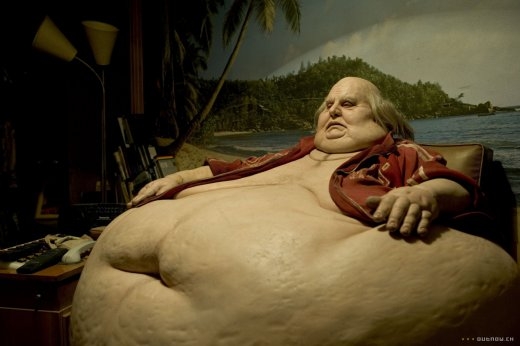
ASSOCIATED PRESS: Police say a gang in the Peruvian jungle has been killing people and draining fat from the corpses to sell on the black market for use in cosmetics, although medical experts say they doubt a major market for fat exists. Three suspects confessed to killing five people, but the gang may have been involved in dozens more, said Col. Jorge Mejia, chief of Peru’s anti-kidnapping police. He said one suspect claimed the gang wasn’t the only one doing such killings. Mejia said two of the suspects were arrested carrying bottles of liquid human fat and told police it was worth $60,000 a gallon ($15,000 a liter). The fat was sold to intermediaries in Peru’s capital, Lima, and police suspect it was then sold to cosmetic companies in Europe, Mejia said Thursday, but he could not confirm any sales. At a news conference, police showed reporters two bottles of fat recovered from the suspects and a photo of the rotting head of a 27-year-old male victim. Suspect Elmer Segundo Castillejos, 29, led police to the head, recovered in a coca-growing valley last month, Mejia said. Mejia said Castillejos recounted how the gang cut off its victims’ heads, arms and legs, removed the organs, then suspended the torsos from hooks above candles that warmed the flesh as fat dripped into tubs below. Six members of the gang remain at large, Mejia said. Among them was the band’s alleged leader, Hilario Cudena, 56, who Castillejos told police has been killing people to extract human fat for more than three decades. MORE
CBS NEWS: The health care bill unveiled by Senate Majority Harry Reid on Wednesday night includes a 5 percent tax on elective cosmetic surgery. The tax is expected to raise an estimated $5.8 billion over 10 years to help pay for the $849 billion plan, the Agence France-Presse reports. The tax would only hit elective procedures — it exempts any procedures “necessary to ameliorate a deformity arising from, or directly related to, a congenital abnormality, a personal injury resulting from an accident or trauma, or disfiguring disease.” It would go into effect, according to the bill, on Jan. 1, 2010. MORE
